
From CAN Chair, Alex Dyer
It is amazing to me that we have a situation in politics where some parties - who like to promote values of individual responsibility, personal freedom, local decision making, market-based economics, trading schemes, and other hands-off, government-lite strategies - are also suggesting the nation needs to defend against an ‘anti-car ideology’.
This frames cars as some kind of universally desired, intrinsically essential component of every New Zealander’s life. An item that needs to be heavily subsidised by our collective behaviour, investments, and policies. As if cars for all is some sort of public good that everyone has already fully embraced and *must* aspire to.
You can choose any way to get around, as long as it has four wheels, enclosed multiple seats, air conditioning, is over 1 tonne heavy, has a powerful engine, and travels as fast as possible.
You can independently participate in society only if you are old enough to drive, and not too old, and not otherwise incapable. You must work more to subsidise the transport system by purchasing and maintaining your own vehicle and contribute to fixing the scourge of the potholes. More
Vote Bike
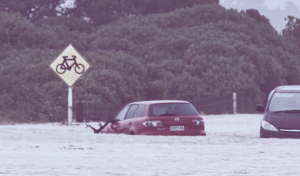
Do you want safe and attractive cycling in New Zealand? Vote bike.
No matter what kind of biking you are into, now is the time to take action.The General Election is coming. Election Day is Saturday 14 October, with advance voting from Monday 2 October. Here's a voting guide from Vote For Climate.
Speaking up for safe streets
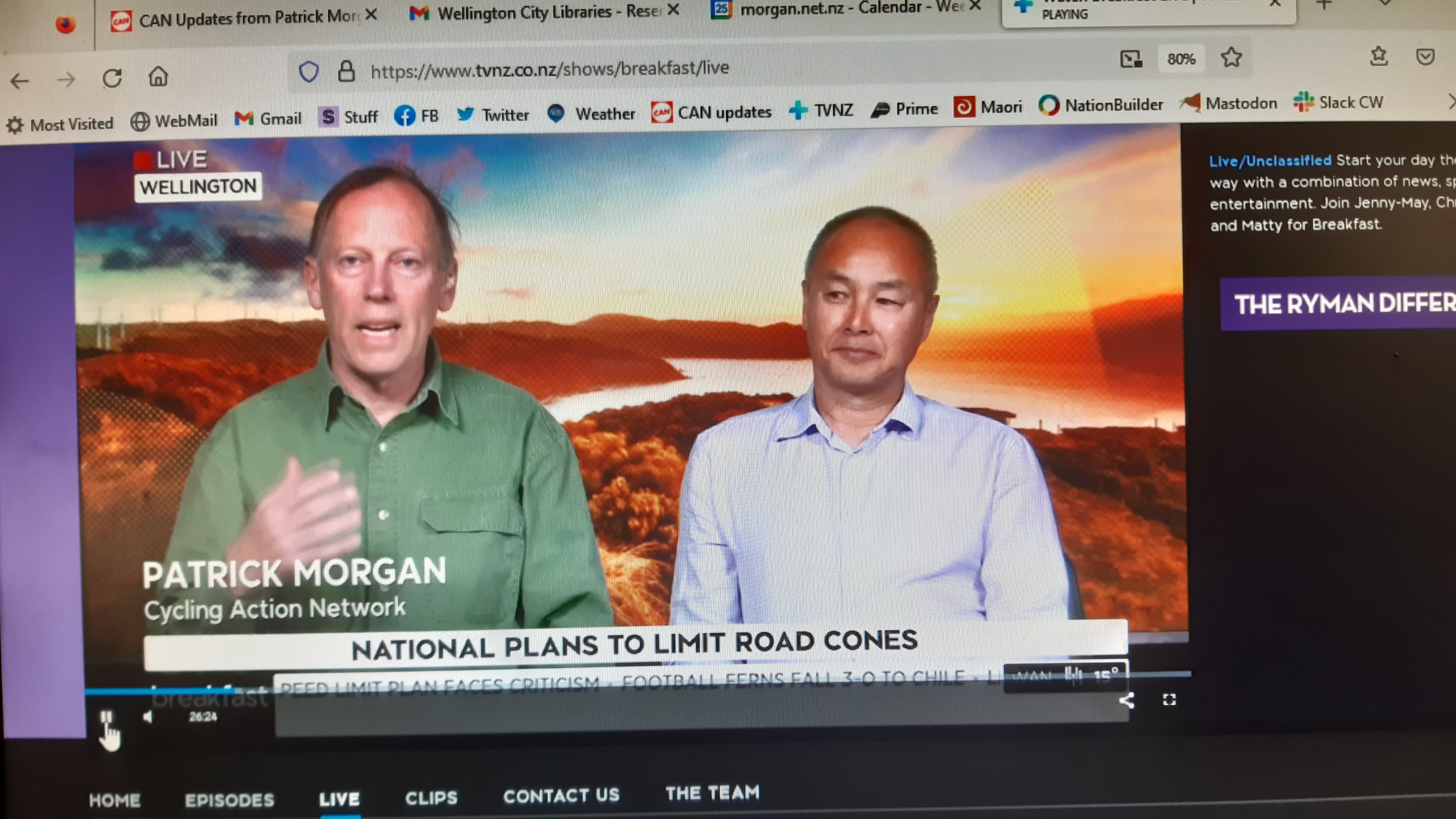
25 September - I woke to the 5am alarm, and biked to TVNZ's Wellington studio. Quiet streets before dawn. Breakfast was running a piece on the National Party's plans to increase speed limits, and I was invited to join. We're at that point in election campaigns where politicians announce policies designed to attract swing votes. I find it hard to imagine who votes for more dangerous streets.
In my view, National's unethical policy to increase traffic speeds would result in more deaths on our streets. Misguided populism leads to great harm. CAN will never stop fighting for safe streets and better biking.
Patrick Morgan, CAN Project Manager
I use a wheelchair and I want more bike lanes
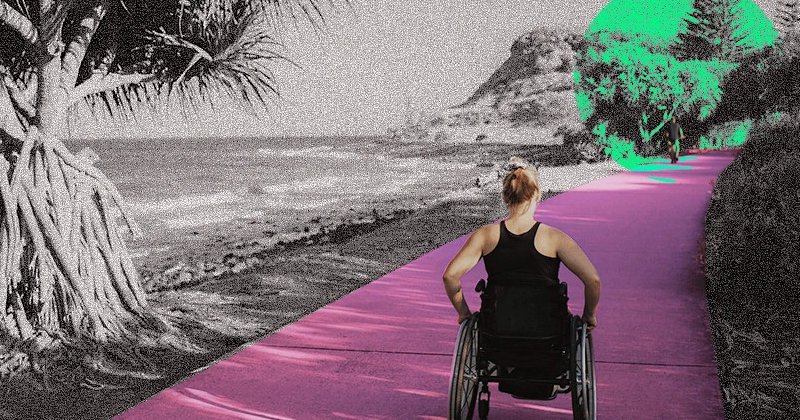
24 August, by EJ Barrett, guest opinion piece for The Spinoff
This may come as a shock, but disabled people who use transport care about more than just car parks.
It seems like nearly every week I am having arguments about how bike infrastructure is ableist. It’s not. The disabled community is frequently impacted by non-disabled people speaking on behalf of us, using our narratives to further their own agenda and causing harm in doing so. More
Take action today - Liberate the Lane

Sign the petition to open up Auckland Harbour Bridge to active transport.
Save the dates
2Walk and Cycle conference, 18-19 March 2024.
CAN Do: CAN's annual advocacy gathering, 16-17 March.
Both in Wellington
Reshaping Streets offers Councils a new way to build bike lanes, faster
21 July - The Government has given councils new powers to make street changes more easily in pursuit of locally agreed needs and objectives, Transport Minister David Parker said today.
“Councils have asked for law change that gives them greater autonomy in how they modify their streets. Decisions at this level should be made locally, not by central Government,” David Parker said. More.
What about E-scooters?
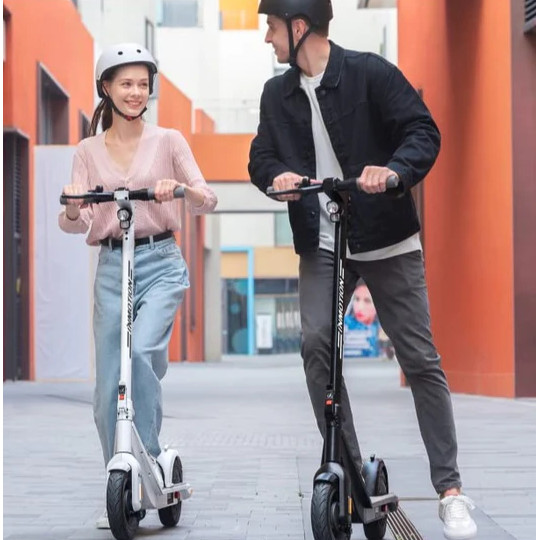
The arrival of e-scooters in significant numbers in NZ creates issues for how we get around. What are the issues?
by Patrick Morgan
Although there are some risks, overall there are net benefits.
- more demand for bike lanes and traffic calming
- helps transition to low-carbon, less car-dependent transport
- but risks need to be managed
- footpaths are primarily for people on foot.
CAN Policy
E-scooters are here already. It's a bad look to seek to restrict something that's already proving popular. This is about managing benefits and risks. More.
Advocacy works: Build it, and they will come
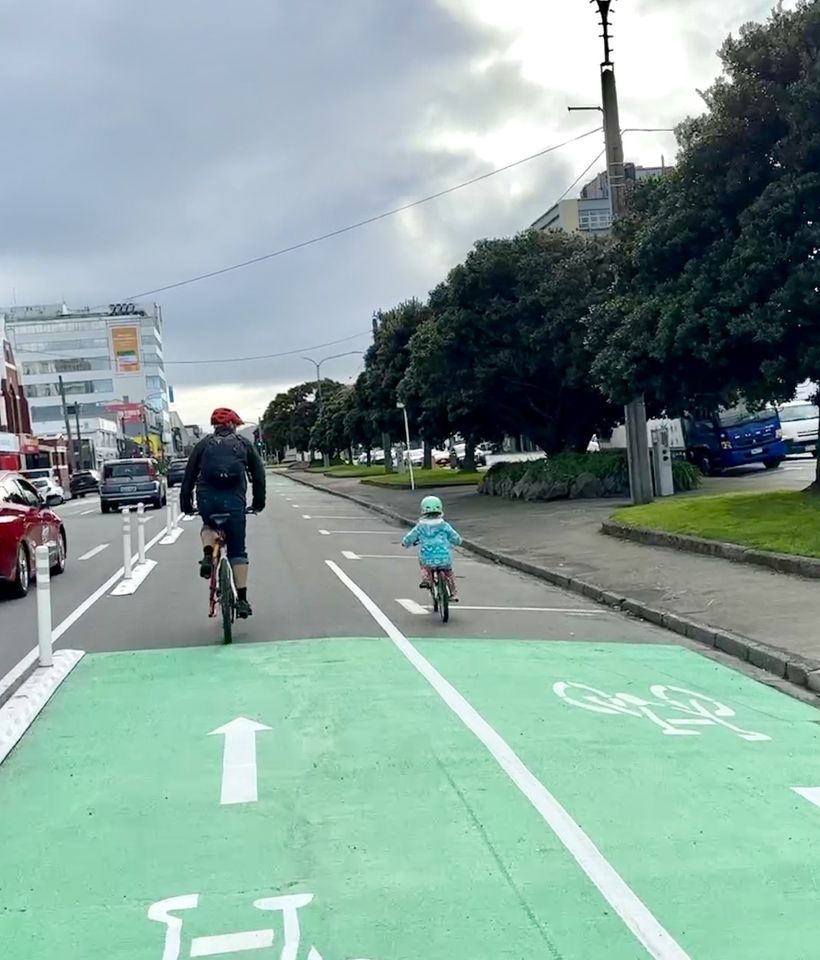
Wellington, 22 September, The Newtown to city bus and bike improvements are now officially open, after a dawn ceremony held on World Car Free Day. The 2 km connection makes it safer and easier for more people to travel by bus and bike from the heart of Newtown to the heart of the city.
Deputy Mayor Laurie Foon said: “Our street spaces make up the majority of our public spaces, and we want to make these about people – opening them up for people and children walking, using mobility aids or wheelchairs, riding bikes, and using public transport.
“We’ve already seen a 93 percent increase in people riding bikes past the Basin Reserve with the new two-lane bike route on Kent and Cambridge Terraces. These changes are not just about commuters – we’ve seen kids riding in places we would have never seen before – kids riding with their parents, riding independently, and riding to school.” More
Help CAN achieve more
Help us achieve more - be our tailwind
Do you want attractive and safe cycleways? Don’t you hate it when people pass you too close or cut you off? Are you shocked that only 2 percent of our kids bike to school?
Cycling Action Network is a people-powered movement for a better New Zealand. We speak up for you. We rely on you. Here's our achievements since 1997.
Donate today. With more of us, the stronger our voice. CAN needs your help to fund the work that's needed. Please contribute today.
Follow us on Facebook, Twitter @CyclingActionNZ @PatrickMorgan and Bluesky @patrickmorgan.bsky.social
About Cycling Action Network
CAN is New Zealand's national network of cycling advocates. We work with government, local authorities, businesses and the community on behalf of cyclists, for a better cycling environment. can.org.nz
Greetings and thanks for supporting Cycling Action Network.
Make sure all your friends and family have joined up, and if you want to get involved, please volunteer!
